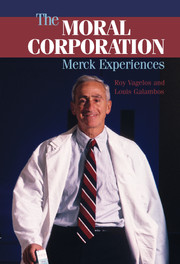9 - Afterwards
Published online by Cambridge University Press: 05 June 2012
Summary
When I retired in 1994, I left Merck with several major regrets. One was completely personal. Company policy required me to stop doing what I loved, and I found that very upsetting. Love is the right word in this case. I loved the opportunity I had to play a role in building a successful pharmaceutical company, and I hated the thought of retirement. After a brief interlude in which I was introduced to depression for one of the first times in my adult life, I found a number of new problems to solve and new opportunities to help improve our society.
My second regret was that I was never completely satisfied with the level of innovation we had achieved in our marketing efforts. Although Medco had made tremendous strides in lowering the costs of distribution, the old system of personal “reps” remained intact and continued to play a large role at Merck and throughout the rest of the industry. We had introduced laptop computers and emphasized the role our reps played as sources of up-to-date information for physicians and other healthcare professionals. We had the highest standards in the industry, I believe, for what we would say about our products and those of our competitors. But the system was still fundamentally flawed.
We sent our well-trained reps to wait in physicians' offices for hours hoping to spend a few precious minutes with the doctor. When I was a practicing physician, many years ago, I never talked to reps because I didn't want to waste my time.
- Type
- Chapter
- Information
- The Moral CorporationMerck Experiences, pp. 173 - 180Publisher: Cambridge University PressPrint publication year: 2006



